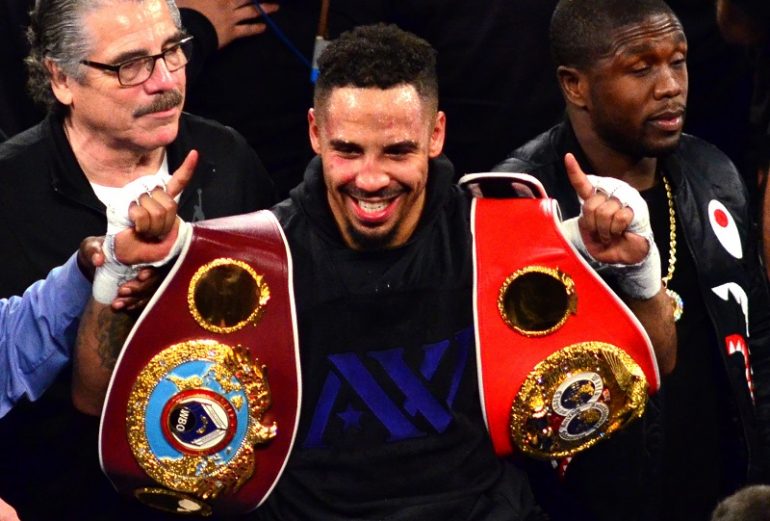Nevada executive director defends scoring of Ward-Kov

Nevada State Athletic Commission executive director Bob Bennett defended the controversial scoring of Andre Ward’s narrow win against Sergey Kovalev on Saturday, rejecting any hint of favoritism on behalf of three American judges for an American boxer who won Olympic gold and was facing a Russian in Kovalev.
“There’s no prejudice,” Bennett told RingTV.com on Monday. “There’s no bias from this commission. We have no vested interest in who wins. We’re not emotionally involved.” Two of the three judges had Ward winning the final six rounds; none of the judges had Kovalev winning the 10th round, even though he seemed to have a slight advantage. Judges Glenn Trowbridge, Burt Clements and John McKaie awarded a unanimous decision to Ward by identical scores of 114-113, the same tally that Bennett had, for Kovalev’s light heavyweight WBA/IBF/WBO titles. That prompted Kovalev to suggest in the ring afterward he was the victim of a hometown decision for the American-born Ward, rationale which Bennett rejected.
“When you see how the judges’ scored I think it’s truly indicative of a very competitive fight,” Bennett said in a phone interview. “As a judge, there’s no prejudice. There’s no bias. We have no interest in who wins. As a regulator, we care about doing the very best job we can do.”
Bennett also thought referee Robert Byrd was effective in allowing the boxers to fight out of clinches and basically determine the outcome themselves. Ward is a more dominant inside fighter than is Kovalev and Byrd’s tendency to let the fighters grapple in close quarters and figure things out certainly was to Ward’s advantage. “You can certainly make an argument that he could have stopped some of the holding a little earlier than he did,” Bennett said. “But I thought he was very consistent in that he let the fighters fight their way out until he felt they had been holding for a long enough period of time that required him to separate them.”
Bennett said he sent out the pool of judges who were being considered to both camps beforehand and no one had an objection. Of Ward winning the final six rounds on two of the cards, Bennett didn’t have an issue with the judges’ saying Ward dominated the second half of the fight.
“From my vantage point, and from what the judges saw, I think it was two separate fights,” Bennett said. “I think Kovalev definitely dominated the front end of the fight and then in the second half of the fight it appeared to me that Andre was fighting inside and was scoring and then when he went to the outside, Kovalev had a hard time connecting and scoring punches.”
A large number of media ultimately scored the fight a win for Kovalev, but Bennett said reporters have a different vantage point, sitting in press row than do the judges, who are ringside. “It’s not like sitting where the judges are,” Bennett said. “And arguably one punch can change the round.”
Byrd was conscious of not making himself a focal point of the fight to let the fighters determine the outcome, according to Bennett. “I think Robert was very cognizant of the flow of the fight,” Bennett said. “He wants them to fight their way out of holding so he doesn’t have to interrupt that flow every ten seconds. Obviously, Ward was doing a better job — he changed his game plan because he wanted to get inside and they were both holding and Kovalev put Ward in I don’t know how many headlocks. So I think in fairness to Robert, I think he wanted to make sure that the fighters determined the outcome of the fight and he would break it up when he deemed it appropriate and I think both of them held, probably the same amount of times.”
Bennett also felt Byrd didn’t want to get to the point where he was constantly warning the fighters to the degree where he would have had to be in a position to start deducting points. “Robert could have broken them up sooner, but then what happens is you start breaking up a fight too much, and you disrupt the flow — now you start moving into an area that, ‘Hey, I’m going to have to take a point,’” Bennett said. “And then I’m eventually going to have to take a point from you. Now, our objective was for two world class championship fighters to fight their fight and let the result be the result of their actions.”















